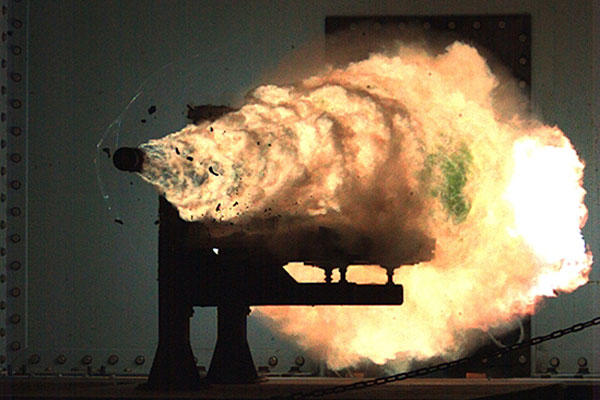U.S. Navy ships increasingly reliance on computers and software to operate make them plum targets to cyber or electromagnetic attacks, according to a new maritime strategy released by the Navy.
If a ship's systems such as navigation, sensors, communications systems and weaponry are increasingly computer-reliant, a higher priority must be placed on the ship's cyber security systems, the strategy suggests.
This would prevent a ship's navigation or weapons systems from being taken over or mis-directed through a cyber attack, the Navy's new strategy explained.
Called "A Cooperative Strategy for 21st Century Seapower," it emphasizes the need to operate in "all domains" to include the cyber arena and electromagnetic spectrum alongside more traditional domains such as air, land, space and sea. It's the first update to the sea services strategy in eight years.
"Obviously we face more cyber threats and more threats in the electromagnetic spectrum than we did in 2007. This is an attempt to look at the capabilities we need," Rear. Adm. William McQuilkin, Navy Director of Strategy and Policy, told reporters Friday.
The new strategy also maps out familiar themes for the Navy, Marine Corps and Coast Guard by emphasizing increased forward presence, anti-access/area-denial and specific regional areas of focus such as the Pacific and Middle East. For example, the strategy says the Navy will increase the number of forward deployed ships from 97 in 2014 up to 120 by 2020.
However, the strategy's emphasis on cyber security and electromagnetic attack stuck out.
The new strategy includes threat information from parts of the world and embraces a broad recognition about the pace of global technological change.
"All domain access is to make sure that we can assure access in all domains. We'll be looking at the ability to project force into contested areas to make sure you have sufficient freedom of action. To do this we'll be looking at electromagnetic maneuver warfare and how we assure that spectrum," said McQuilkin.
Brig. Gen. Kevin Killea, Commanding General of the Marine Corps Warfighting Laboratory and Vice Chief of Naval Research, said the recent cyber attack on Sony pictures provided evidence of just how quickly the global threat environment regarding the cyber arena was changing.
Coast Guard leaders, an integral part of the new sea services strategy, emphasized that increased computer reliance needs to translate into greater cyber security.
"So many aspects of maritime transportation are now reliant on computer controls -- not only the more traditional navigation and communications technology but also the physical responses of facilities and vessels such as unmanned systems that unload and scan cargo containers," said Rear Adm. Peter Brown, Assistant Commandant for Response Policy, U.S. Coast Guard.
"We have to make sure from a Coast Guard perspective that the supply chain is secure from a cyber perspective. The Coast Guard needs to be aware of what threats and challenges are out there to the global maritime transportation system through cyber access."
-- Kris Osborn can be reached at kris.osborn@military.com



























